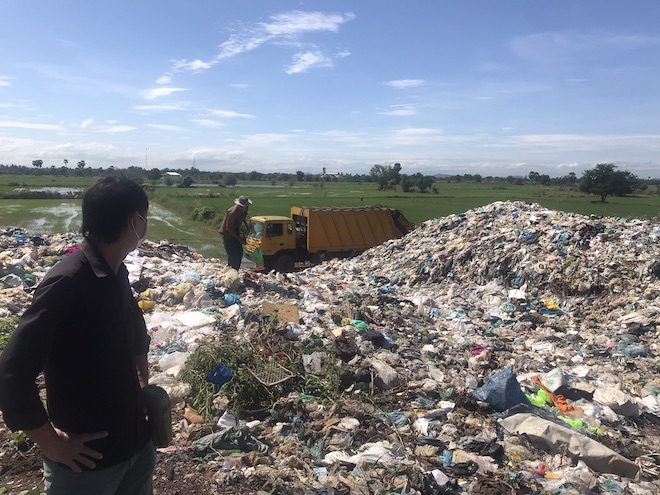
This article is published in collaboration with Ramboll.
Known for its well-preserved French colonial shop houses and a smattering of ancient temples, Battambang is Cambodia’s second most populous city and a frequent stop of tourists. But like many growing provincial cities in the country, Battambang is in need of infrastructure investments and capacity development to improve urban planning, increase coverage of urban services, and address environmental concerns, such as flooding, lack of sanitation, and pollution.
Currently, there are three investments from the Asian Development Bank (ADB) that cover Battambang—the Cambodia: Provincial Water Supply and Sanitation Project, the Cambodia: Greater Mekong Subregion Southern Economic Corridor Towns Development Project, and the Cambodia: Second Urban Environmental Management in the Tonle Sap Basin Project. ADB is considered a lead partner in the country’s urban sector, which is also supported by other development partners like the Japan International Cooperation Agency, Agence Française de Développement, and the World Bank.
More recently, the ASEAN Australian Smart Cities Trust Fund (AASCTF) has also stepped in to complement the ADB Tonle Sap urban project, particularly its focus on improving solid waste management through a 350,000-cubic-meter landfill in Battambang. AASCTF—which is financed by the Government of Australia, managed by ADB, and implemented by global consulting firm Ramboll—is piloting a smart solid waste management system in the city together with smart financial management solutions.
Poor waste management
Solid waste management is languishing in the city. While more than half of the population are serviced by a waste operator, waste collection remains irregular, if not outright poor. There are frequent delays in pick-ups and in some areas, waste is dumped in public areas and in rivers, or waste is simply burnt. Solid waste infrastructure and equipment are also inadequate, with big waste trucks trying to fit into small roads and simply not enough waste bins for collection and segregation.
These are just some of the findings from a diagnostics assessment conducted by AASCTF, which were presented to city officials during a hybrid stakeholder consultation workshop on 9 December. The AASCTF project team—consisting of some Ramboll international experts who are on the ground, the first for AASCTF since the pandemic—also presented the findings of a readiness assessment that looked into the city’s potential for implementing digital solutions.
The workshop followed prior consultation meetings and site visits conducted by the team, such as at the Phou Puy Market and the Central Market (that is under Battambang Province). In Cambodia, a country that is still largely an agricultural economy, markets are hubs for waste generation. The city’s waste is 66% organic waste, and of those that are composted (by COMPED or the Cambodian Education and Waste Management Organization, which has a capacity of 8–10 or 10–12 tons per day), about 4 tons come from the markets. Some of the issues faced at Phou Puy, for example, is the lack of waste containers, resulting in accumulated trash around the market; and also, market vendors who are unwilling to segregate due to lack of time.
Assessing the city's needs
Along with the two assessments, the AASCTF project team has formulated 10 possible pilot ideas under six different themes that could match the city’s needs and their own pilot initiative to introduce e-billing and improve services in two sangkats or communes. The ideas, which were also presented at the consultation workshop, include introducing e-payments for households, industries, and market to improve fee collection; using radio frequency identification (RFI) tags on bins and skips to optimize waste collection monitoring; introducing drones and smartphones for online and digital monitoring by capturing videos or photos that can be stored and presented in a GIS map according to different priorities; and, procuring electric vehicles for waste collection, among others.
Of the 10 ideas, the idea to implement e-payments rated the highest among the workshop participants, followed by a tie between introducing designated waste bins at public waste sites and markets, combined with incentives for use, and developing information for households and other stakeholders on the importance of sustainable waste management.
Alexander Nash, ADB urban development specialist, is not only interested in ensuring a good landfill site, but having “good solid waste service.” He said, “Good solid waste service needs sufficient revenues and good financial management to make it work. We also think this service in particular is suitable to the application of some new digital technologies, which is what this project is about.”
The current scoping and analysis phase of the AASCTF project was set to conclude by end-January 2022 to be followed by the second phase that focuses on implementing the pilot interventions chosen. Claus Klitholm, project team member, said the goal is to help the city enforce solid waste collection and monitoring by using technology to “do things more intelligently.”
Battambang is one of the 26 pilot cities in the ASEAN Smart Cities Network. Other organizations, such as French non-profit GRET (Professionals for Fair Development) and the United States Agency for International Development, are also supporting the city in improving its solid waste management.
This article was first published by Ramboll, a global architecture, engineering and consultancy company, on 22 January 2022. Read the original article.
 Elga Reyes
Elga Reyes
Communication Expert, Ramboll
Elga Reyes has been working in the sustainability and international development sectors for nearly a decade. Prior to Ramboll, she served as a communications consultant for ADB.

